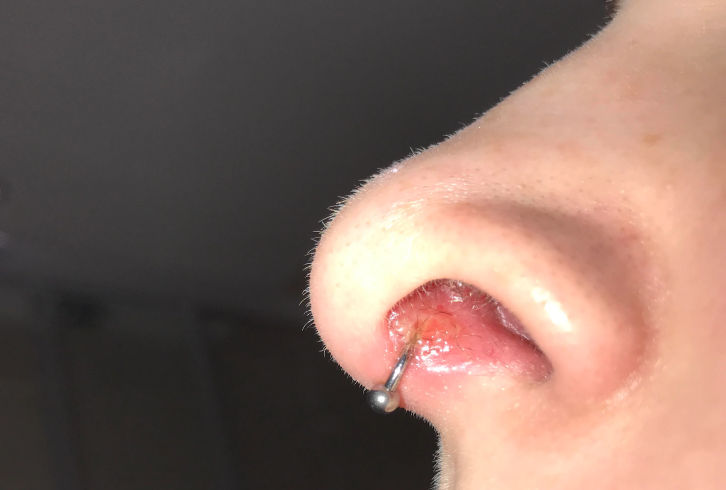I Blew My Nose After Tooth Extraction
If you’ve blown your nose after a tooth extraction, it’s important to monitor the extraction site for any signs of increased bleeding or pain. Forceful nose blowing can potentially disturb the blood clot that forms in the tooth socket, which is necessary for proper healing.
If you notice any unusual symptoms or have concerns, it’s advisable to contact your dentist or oral surgeon for guidance. They can assess the situation and provide appropriate advice or treatment if necessary. Remember to follow any post-operative care instructions provided by your dental professional to ensure the best possible healing outcomes.
Why is Blood Clotting Essential for the Healing Process?

When you get a tooth pulled, there’s a little thing called a blood clot that does a big job. It’s like a superhero, quietly making sure everything heals up just right.
Role of Blood Clot in Healing
Protecting the Extraction Site
The blood clot forms a protective barrier over the extraction site, shielding it from external elements like bacteria and debris. This barrier is important in preventing infections that could impede the healing process and cause complications.
Initiating the Healing Process
Beyond protection, the blood clot plays a proactive role in initiating the healing cascade. It acts as a scaffold for the regeneration of tissues, including bone and gum tissue, essential for the complete recovery of the extraction site.
Minimizing Bleeding
One of the primary functions of the blood clot is to control bleeding from the tooth socket.
By sealing off blood vessels, the clot minimizes the risk of excessive bleeding, promoting a stable environment conducive to healing.
Promoting Tissue Regeneration
The growth factors present in the blood clot stimulate the production of granulation tissue.
This tissue is fundamental for the closure of the wound, aiding in the formation of healthy gum tissue and contributing to the overall structural integrity of the healed area.
Potential Consequences of Disrupting the Blood Clot
Dry Socket Formation
Disrupting or dislodging the blood clot prematurely can lead to the development of dry socket. Dry socket exposes the underlying bone and nerves, causing severe pain and delaying the healing process.
Increased Pain and Discomfort
The disruption of the blood clot exposes nerve endings, resulting in heightened sensitivity and increased pain. Patients may experience throbbing or sharp pain in the extraction site, making the recovery process more uncomfortable.
Risk of Infection
Without the protective barrier of the blood clot, the extraction site becomes vulnerable to bacterial infiltration. Infections can compromise the healing process, leading to more severe complications that may require additional interventions.
Delayed Healing Time
Disrupting the blood clot significantly slows down the natural healing process. Prolonged healing times increase the likelihood of complications and may necessitate further dental interventions to address issues that arise during the extended recovery period.
Necessity for Additional Interventions
Patients who experience disruption of the blood clot may require additional dental interventions to manage complications such as dry sockets. These interventions can include further procedures to promote healing and alleviate associated symptoms, leading to an extended and potentially more complex recovery process.
Potential Risks and Consequences of Forceful Nose Blowing

As your mouth heals after a tooth is taken out, it’s important to know what might happen if you blow your nose too hard.
Why Forceful Nose Blowing is Discouraged
Protecting the Healing Clot
Blowing your nose hard can shake things up in your mouth, especially in the spot where your tooth was pulled. This strong blowing might mess with the little blood clot forming there, which is vital for healing. It’s like a tiny shield, and we want to keep it in place.
Avoiding Painful Dry Socket
If the blood clot gets moved or disappears too soon, it could lead to something called dry socket. Dry socket is painful and slows down the healing process, so we want to be careful not to disturb that important blood clot.
Preventing Extra Bleeding
Blowing your nose really hard might make the bleeding start again at the tooth-pulled spot. This extra bleeding can make it harder for the blood clot to form properly, causing more problems in the healing process.
Common Risks of Nose Blowing After Extraction
More Pain and Slower Healing
Blowing your nose too hard can make the healing spot hurt more. It might also slow down how fast everything heals, making the whole recovery process take longer.
Possible Infection Risk
If the blood clot is moved, there’s a chance that germs could get into the spot where your tooth was pulled. Infections can make the healing process harder and might need more attention from the dentist.
Trouble Growing New Tissue
Moving the blood clot might stop the new tissues from growing properly. This could mean the spot where the tooth was pulled might not heal as well or as strong as it should.
More Bleeding Problems
Blowing your nose too hard could cause more bleeding from the spot where your tooth was pulled. This makes it tougher for the blood clot to do its job, and the dentist might need to help stop the bleeding.
What to Do If You’ve Blown Your Nose?
If you accidentally blew your nose after getting a tooth pulled, don’t worry! Let’s talk about what you can do to help things get back on track and keep your healing process going smoothly.
Steps to Take Immediately After Nose Blowing
- Assess the Situation: If you’ve blown your nose after a tooth extraction, assess the intensity of the nose blowing and any immediate effects. Pay attention to signs such as increased pain, bleeding, or a noticeable change in the extraction site.
- Gently Rinse (if needed): If there’s bleeding or if you suspect the blood clot may have been disturbed, rinse your mouth gently with lukewarm saltwater. This can help remove any debris without disrupting the clot further. Avoid vigorous rinsing to prevent additional trauma.
- Apply Gauze Pressure: If bleeding persists, place a clean, damp gauze pad over the extraction site and apply gentle pressure by biting down. This helps control bleeding and promotes the formation of a new blood clot.
- Avoid Further Nose Blowing: Refrain from any further forceful nose blowing. Instead, if necessary, use a tissue and blow your nose gently with a one-nostril technique, avoiding the side of the extraction.
- Follow Post-Operative Instructions: Review the post-operative care instructions provided by your dentist. Ensure that you’re following all guidelines, including any specific recommendations related to accidental nose blowing.
When and How to Contact Your Dentist or Oral Surgeon
- Persistent Bleeding: If bleeding from the extraction site continues despite applying gauze and following the recommended steps, contact your dentist or oral surgeon promptly. Excessive bleeding may require professional intervention.
- Increased Pain: If you experience a sudden increase in pain, especially if accompanied by other concerning symptoms, it’s advisable to reach out to your dental professional. This could be indicative of complications such as dry socket or infection.
- Visible Changes or Discomfort: If you notice any visible changes in the extraction site, such as exposed bone, a dislodged blood clot, or increased discomfort, inform your dentist. These signs may warrant a closer examination to ensure proper healing.
- Signs of Infection: Watch for signs of infection, including persistent swelling, warmth, redness, or the presence of pus. If any of these symptoms occur, contact your dentist for guidance on potential infection management.
- Fever or Systemic Symptoms: If you develop a fever or experience systemic symptoms, it could be indicative of an infection spreading. Contact your dentist promptly to discuss your symptoms and receive appropriate guidance.
FAQ
How serious is sinus perforation after tooth extraction?
Sinus perforation after tooth extraction can be a serious complication. It may lead to issues such as infection or prolonged healing. Seeking prompt professional attention is crucial to assess the severity and determine appropriate treatment.
Can sniffling cause dry socket?
While sniffling itself may not directly cause dry socket, forceful or frequent sniffling can create pressure that might disrupt the blood clot in the extraction site, increasing the risk of dry socket. It’s important to be cautious with nasal activities during the initial healing period.
How do you stop your nose from bleeding after a tooth extraction?
To stop nose bleeding after tooth extraction, avoid forceful nose blowing. Instead, gently pinch your nostrils together and lean forward. Applying a cold compress to the nose can also help constrict blood vessels and reduce bleeding.
What happens if a dentist punctures your sinus cavity?
If your dentist accidentally punctures your sinus cavity during a procedure, it’s important to address it promptly. Potential symptoms include nasal congestion or a runny nose. Consult your dentist for proper guidance and treatment.
Can I sue my dentist for sinus perforation?
Whether you can sue your dentist for sinus perforation depends on the circumstances and evidence of negligence. Consulting with a legal professional is advisable to assess the situation, evaluate potential malpractice, and determine the best course of action.
How long does it take for sinus to heal after tooth extraction?
The healing time for a perforated sinus after tooth extraction varies. Generally, it takes several weeks. Follow your dentist’s recommendations, and if you notice prolonged discomfort, consult for further guidance.
What does a ruptured sinus feel like?
A ruptured sinus may cause symptoms such as nasal congestion, drainage of clear fluid into the mouth, and a feeling of pressure or fullness in the affected sinus. Pain and swelling may also be present. If you suspect a ruptured sinus, seek prompt medical evaluation.
What helps sinuses after tooth extraction?
To promote sinus health after tooth extraction, follow post-operative care instructions provided by your dentist. Avoid forceful nose blowing, keep the head elevated during sleep, and use saline nasal sprays to maintain nasal moisture. If sinus-related symptoms persist, consult your dentist or a healthcare professional.
Final words
In conclusion, if you’ve accidentally blown your nose after a tooth extraction, don’t panic. Take a moment to assess and follow these steps: rinse gently, apply pressure with gauze if needed, and avoid forceful nose blowing.
Remember to stick to post-operative instructions. If bleeding persists or you notice any unusual changes, reach out to your dentist. Stay calm, and with proper care, you can still support a smooth recovery.






